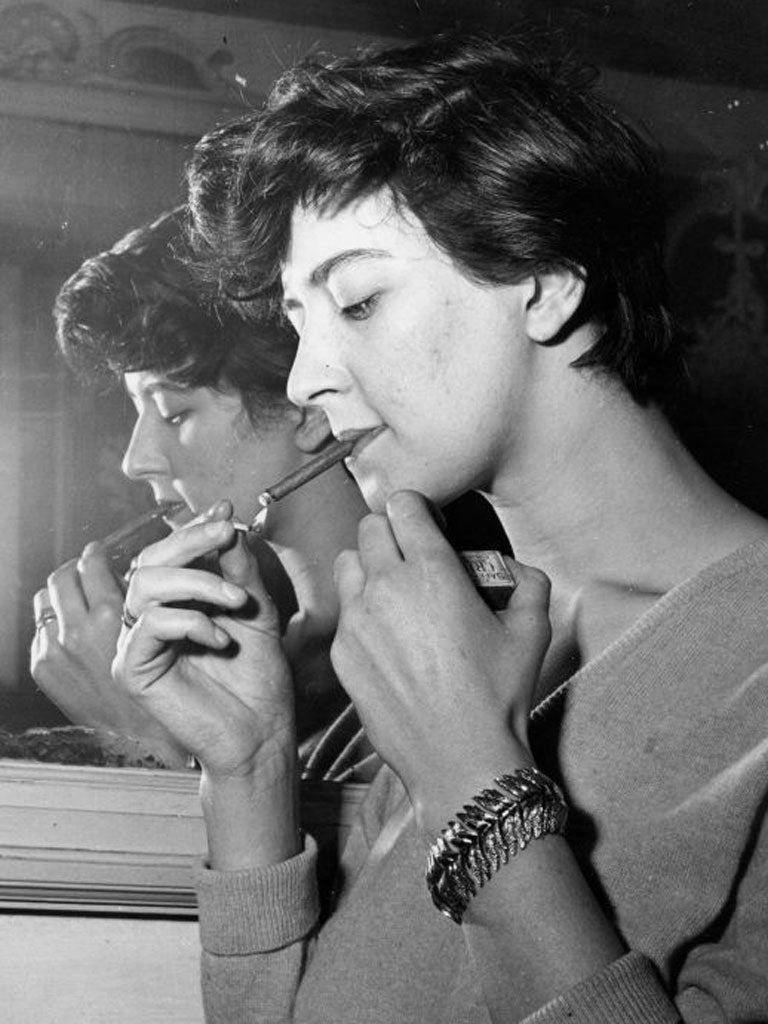Shelagh Delaney: Writer best known for her controversial first play 'A Taste of Honey'

Your support helps us to tell the story
From reproductive rights to climate change to Big Tech, The Independent is on the ground when the story is developing. Whether it's investigating the financials of Elon Musk's pro-Trump PAC or producing our latest documentary, 'The A Word', which shines a light on the American women fighting for reproductive rights, we know how important it is to parse out the facts from the messaging.
At such a critical moment in US history, we need reporters on the ground. Your donation allows us to keep sending journalists to speak to both sides of the story.
The Independent is trusted by Americans across the entire political spectrum. And unlike many other quality news outlets, we choose not to lock Americans out of our reporting and analysis with paywalls. We believe quality journalism should be available to everyone, paid for by those who can afford it.
Your support makes all the difference.Shelagh Delaney's play A Taste of Honey was part of Britain's cultural revolution of the late 1950s, when well-made plays and films gave way to the gritty realism of working-class life. It was the era of kitchen-sink drama and Angry Young Men. Delaney, who has died of cancer just short of her 72nd birthday, was an Angry Young Woman.
She was 19 when A Taste of Honey opened at Joan Littlewood's pioneering Theatre Royal Stratford East. The downbeat tale of a young woman's pregnancy following a one-night stand with a black sailor, and her supportive relationship with a gay artist, verged on scandalous, but the play had successful runs in London and New York.
In Encounter in 1959, Colin MacInnes wrote, "A Taste of Honey is the first English play I've seen in which a coloured man and a queer boy are presented as natural characters, factually, without a nudge or shudder ... The play gives a great thirst for more authentic portraits of the mid 20th-century English world."
Delaney had written the play in rebellion against a theatrical culture she saw as portraying what she referred to in Ken Russell's 1960 film for Monitor as "safe, sheltered, cultured lives in charming surroundings, not life as the majority of ordinary people know it."
Her immediate inspiration was her dislike of Terence Rattigan's Variations on a Theme. She wrote A Taste... in two weeks, reworking material from a novel she was writing. She sent the manuscript to Littlewood, writing, "I am sending this play to you for your opinion. Would you please return it to me, as whatever sort of theatrical atrocity it is to you it means something to me."
Instead, Littlewood put the play into rehearsal within two weeks, and it opened in May 1958. It transferred to the West End and then to Broadway, providing personal triumphs for Joan Plowright, who played the girl onstage, and Rita Tushingham, who played her in Tony Richardson's superbly atmospheric 1961 film adaptation.
Some critics were scathing, however: "Once, authors wrote good plays set in drawing rooms. Now, under the Welfare State, they write bad plays set in garrets," sneered "EG" in the Daily Mail, though Graham Greene wrote, "It has all the freshness of Mr Osborne's Look Back in Anger," adding waspishly, "and a greater maturity". Delaney and Richardson shared Bafta and Writer's Guild awards for best screenplay.
Morrissey's passion for A Taste of Honey gave it something of a second life on Smiths records: he took numerous lines from the play, including, "I dreamt about you last night and I fell out of bed twice" on "Reel Around The Fountain". "Hand in Glove", "This Charming Man" and "This Night Has Opened My Eyes" also quote Delaney, who was featured on the cover of the Smiths' 1987 album Louder than Bombs. She politely turned down Morrissey's invitation to appear in the Meltdown Festival he curated on London's South Bank in 2004.
Born in Salford in 1939, Delaney left school at 16, working as a salegirl, an usherette and a photographer's assistant. Her early work was rooted in her home town. "The language is alive, it's virile, it lives and it breathes and you know exactly where it's coming from," she told Ken Russell in the Monitor film. "Right out of the earth. Down by the river it's even romantic, if you can stand the smell."
Her 1960 follow-up, The Lion in Love, about the marriage between a frustrated man and an aggressive woman, didn't enjoy the same success, and Delaney would not write for the theatre again until 1979, when she revised her BBC series The House that Jack Built.
In between, she wrote screenplays: The White Bus (1966), adapted by Lindsay Anderson from a short story from Delaney's 1963 collection Sweetly Sings the Donkey; Charlie Bubbles (1968), starring Albert Finney as local-lad-made-good returning to Manchester in his Rolls-Royce, for which she won a second Writer's Guild Award; and The Raging Moon (1970), directed by Bryan Forbes, which bravely explored the sexual relationship between two wheelchair-bound characters (Malcolm McDowell and Nanette Newman). The best of her screenplays is probably Dance With A Stranger (1985), in which Miranda Richardson portrayed Ruth Ellis, the last woman to be hanged in Britain.
Delaney never quite repeated the success of A Taste of Honey – which for all its grittiness she saw as essentially optimistic. "No one in my play despairs," she said. "Like the majority of people they take in their stride whatever happens to them and remain cheerful."
Shelagh Delaney, playwright and screenwriter: born Salford, Lancashire 25 November 1939; one daughter; died 20 November 2011.
Join our commenting forum
Join thought-provoking conversations, follow other Independent readers and see their replies
Comments